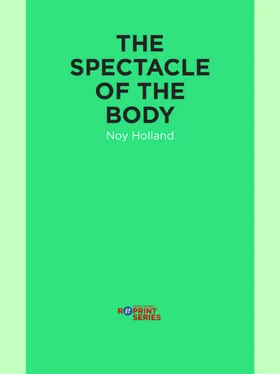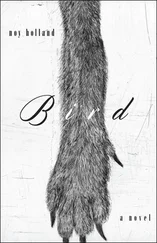I greet you, lovely, wishing you are healthy.
P.S. (Tommy Litz)
P.S. (S.) Ladies. Please before you debunk the train, check the seat beside of you for your children and/or personal belongings. (Tommy Litz)
“I shoot all cars, trains, boats.” This is what Delroy tells us. “But look, but look, but look.” (Delroy)
Unwanting their dog, the Leroys shot it.
Unwanting to live in Columbus, Oh, Mr. Leroy drove his aeroplane into the local river.
Unwanting ——, they ——.
I sincerely hope that I for one do not fall under this ideology. I am 2-0-6.
My future goal is to seek a job in the area of radio announcement (in the Big Apple area). Which means, a great big heartless mass of druggies, murderers, et cetera, as we picture the Big Apple area.
Ladies, ladies, ladies. Could you help TOMMY think of some way to let off some self-esteem? HA. 1145 3 deg. drive. I am weak in some particular areas. (O. H. LITZ) (which used to live in Buga.) Our grandmother is very sick and died there (Buga). We used to love her so much.
Sincerely,
Tommy Litz.
I cramp T. Litz (the original).
Anyway so, Sunshine, (why not) let me feel I know you again?
THE CHANGES IN UNION CITY
The girls go on down to Verda’s to get the place spruced up. They get the dry goods pulled to the lips of the shelves, the pickle loaf back to the freezer. They box the cards, collapse the table.
Opal starts the streamers.
Ida starts at the back of the store, sweeping around the hornets’ nests, the arrowheads, the tools. Ida keeps the dust stirred up.
Lola keeps the ladder still. She blows the mold from the surplus cheese that sits in the heat on the counter. The easy jobs are Lola’s.
Verda climbs the ladder to pull the wreaths from the shelves where they sit, collecting. She drops the wreaths at Lola’s feet, hauls them out to the parking lot.
Ida sings, Bingle, bangle, bungle, I’m so happy in the jungle, I refuse to goooo.
Opal is working on RC’s chair. She tapes the crepe to the cushioned arms, to the levers, twists it, walking backward, getting up on things to lift the swags to tape the tails to hornets’ nests, to scythes and Visqueened windows.
The girls are drinking Pabst Blue Ribbon.
Verda has dyed her hair. She has sorted the mail that has come to the store in the months since RC left there. Verda holds down the fort, keeps the keys. She hoses down the wreaths in the parking lot, hangs them up over the church pew where the head of the fish used to be. On the porch there, where the fish head hung, the boards are brighter, cleaner above the pew. The store is bleached and leaning. The walnut tree beside the porch, even in the early years, tipped up therusting gasoline pumps, shelled the roof, tweaked the tin.
Ida is sweeping softly, stopping to dance a fox-trot with her frizzy broom. When Ida has danced her last dance over the pile in the front of the store, the girls gather around in their nursey flats to sift through the dust for the dimes they have lost, for the jack they have lost from the deck of cards they have stashed with the gin in the bank box. Verda picks out a scrap of paper from the pile and her eyes cloud with a cruddy joy. She shakes the dust off, the insects, commences, cheered by the leaps and slashes, the slant of her husband’s hand.
“Tenpenny. Evap milk. Saltines. Marsh cream. That’s got to be RC,” Verda says. “They God if it ain’t RC,” she says, “before he went to Memphis.”
BRING A BOILED RAISIN CAKE TO YOUR NEXT FUNERAL: that’s what the sign in the window says.
RC himself will say little, according to Verda, little being next to nothing, nothing being next to the little the girls hear when Verda delivers her speech in the store about RC to warn them. They are hopeful. They are widows. They have quit taking wreaths to the graveyard. The rest of town has quit taking them, too, if you go by the books that Verda keeps, if you had gone by the dust on the plastic blooms before she hosed the wreaths down in the parking lot; we have quit eating, too, the rest of town, quit drinking, quit bothering with the mail; we have quit feeding our kids and animals, quit wearing boots or cold creams, boxer shorts, quit playing cards — if you tally the stock that Verda keeps, which stays on the shelves for years.
The girls sit on the pew on the porch of the store and drink their Pabst Blue Ribbon. They talk of what RC used to harp on, of what the girls themselves might guess RC will find it worth his while, when he gets to the store, to harp on. One good guess is the rendering plant. The next good guess is Verda. Their voices rise and shudder, talking about RC. They fuss with the ends of their hair. There is Verda’s auburn hair, they say. There are the eighteen-wheelers that come, hauling cattle, hauling chickens, shoats to the reopened rendering plant on the road through Union City. There is the new road to harp on. There is the old aluminum mall RC hates on State Route 3. There is State Route 3. Roads, RC hates, and what runs on the roads, Airstreams and pickup trucks, motorcars up from Florida to see the dying leaves. He hates the dying leaves, they say. They are switched by now from Pabst to gin, drinking gin from Dixie cups, getting a little lit by now, waiting for RC.
We all of us sit in the drifting leaves waiting for RC, for the rant that began when the railroad tracks our daddies broke their hands to lay quit ever being run on — the Panama Limited and the Seminole, the City of Miami, the long trains to Chicago up from New Orleans. We are an old town, a railroad town, an asterisk of tracks that run to cities we’ve not been to, will not go to now. The tracks are all grown over now. Even the Whiskey Dick to Paducah, which we used to ride in a liquor run out of this dry county, quit. There are new roads and refrigerator trucks, faster, better ways to freight bananas.
When we see the girls on the church pew, we sit out, too, on our porches to watch, waiting to see RC’s face when he sees the signal we have hung at Finn and Pearl in the months he has been in Memphis. The boy who drives the route from Memphis, who comes when we are ailing, who came for RC at the Feed and Seed, guns through the yellow, changing light, swings the hospital car onto Pearl and speeds home to Verda’s — past the cow field, the aluminum mall. One of the boys tips his hat at the car. Another waves. They fold their arms across their chests to keep their cardigans against them.
“It wunt August,” one says. “Must have been July. It was when I fried that chicken.”
“No, Vern,” another says. “We was in the shade. Every living soul with a lick of sense, we was all of us in the shade. We was drinking something.”
“Sure, Arnold, drinking. We was in the shade.”
“If you got the sense God gave a goose, why, you was in the shade, okay?”
“Okay, Arnold.”
“Hot, oh, August,” Arnold says. “Why, it was a hunnerd degrees. We was drinking something.”
“Drinking, yeah. You said that.”
“Lemonade!” Arnold says, remembering. He twists the ring on his finger. “Here he is in his boots coming down from the store and it a hunnerd degrees!”
“Arnold?” Vern says.
“Yeah?” says Arnold.
“Better hush, Arnold. Sit down. Better let me tell it.”
RC, he never sees the boys, going through town that last time. He never sees the four-way light.
The car swoops down over the river, flashes up the steep hill the livestock trucks grind up and the skids off, a popping turn in the gravel lot that makes RC — suppose it makes him feel queasy. He sees the silver heads of the girls, the auburn, recalls talcumy smells and glycerin soap, the terror of purses and shoes. RC lowers his head to his knees as the girls negotiate the steps of the porch, steady themselves on the gasoline pumps as they cross the lot to the car.
Читать дальше











